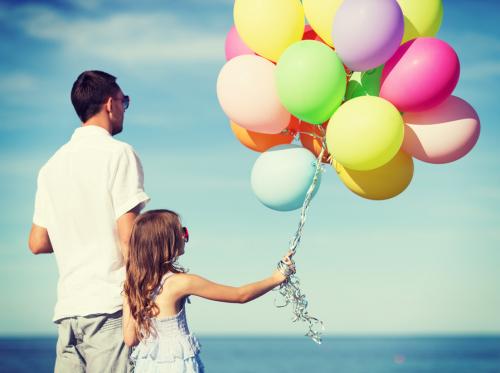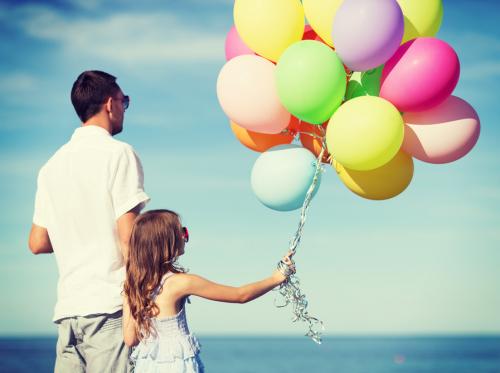When Both Parents and Kids are Grieving

"Our boys keep us sane and going. If it wasn't for them and my job, I would go crazy," Russell said.
Russell's and Patricia’s daughter Talley was their middle child, sandwiched between two sons. She was the princess of their household.
The leukemia was discovered early. The boys had a hard time with their sister being sick all the time. They hated watching her suffer. Talley was a champ, but over time her smile became forced and her spark seemed to be fading.
A residual infection landed Talley in the hospital. The decline was swift, and she died the next morning. She was seven years old.
"It hit the boys hard," Russell continued. "They fought. They acted out. We wanted to help, but had no idea what to do. We all missed her so much."
Helping our kids while grieving ourselves
When a child dies, their siblings are uniquely affected. One of their own has disappeared, and their absence is palpable and confusing. Their little minds wonder and spin.
What does death mean? Does it hurt? Did only a part of her die? Where is she now? Will she come back? Will we see her again? Will she grow up too, or will she always be this age? What's it like to die? Will I die? Will it be soon? Will I get sick too?
The silent questioning goes on and on. Their little minds and hearts are struggling, trying desperately to grasp this unthinkable tragedy.
Some go internal. Some act out. Many get angry, temperamental, or moody. Some have dreams of their sibling, or nightmares. Some might take on parts of their deceased sibling’s personality, such as their likes and dislikes. Others draw pictures. Children have many ways of remembering their brother or sister and keeping them alive in their hearts.
As parents, we’re on grief overload. We yearn for our deceased child, and we hurt for our other kids too. Our hearts are doubly crushed. Parenting right now can feel about as doable as swimming unassisted across an ocean.
Even with other kids in the mix, our focus should still be to grieve responsibly and in a healthy manner. We love our other kids by first taking good care of ourselves. If we don't process our own grief, it will leak out in ways which will not benefit our families.
Part of taking care of ourselves is being honest with our children about what happened, according to their age and ability to understand. We need to express our grief and be real. This hurts. It's confusing. Their sister has died. She is not coming back. We all miss her terribly, but we will get through this together. We all still love her. We will talk about her, share stories about her, and celebrate her life. She is not here with us, but she is still a part of this family.
Kids grieve differently. They grieve over a long period of time, and in spurts. We need to become great listeners and astute observers. We can ask questions, invite them to talk, and draw pictures with them. Their grief will spill forth in snippets, sound bites, sudden tears, and bursts of anger.
Lastly, we need to involve other people who are supportive and know what they're doing. Trusted friends or family can babysit while we get needed breaks. A grief counselor or therapist can provide invaluable assistance on what to do and how. Support groups put us in contact with others affected by loss.
A death impacts the entire family. As much as possible, we need to do this together.
“My other kids are hurting too. We will find ways to grieve together.”
Adapted from the new bestseller, Shattered: Surviving the Loss of a Child.
Article Images




Comments